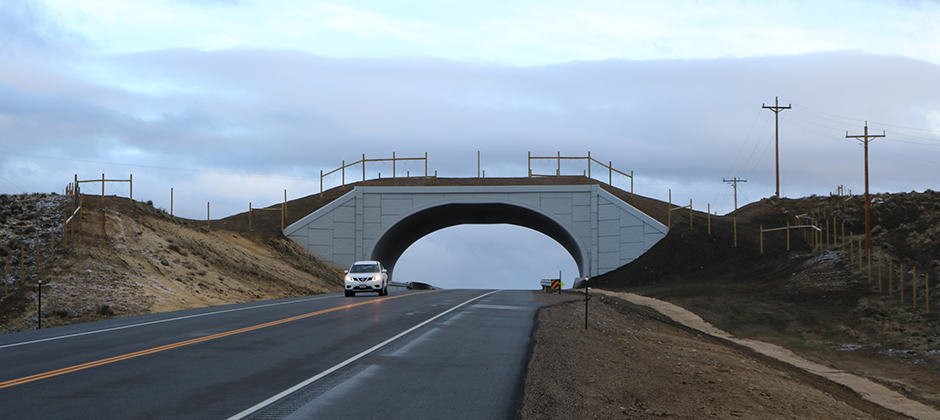Share this article
Senate committee advances bill funding wildlife crossings
The Senate Environment and Public Works Committee unanimously advanced the America’s Transportation Infrastructure Act (S. 2302) on July 30. The bill, which authorizes $287 billion in funding over five years for surface transportation programs nationwide, would establish a $250 million pilot grant program to reduce wildlife-vehicle collisions around the country.
That new pilot program would allow states, tribes and other entities to apply for grants for projects to mitigate wildlife-vehicle collisions and improve landscape connectivity. Each year, approximately 200 people in America are killed in collisions with wildlife, according to the U.S. Department of Transportation. Overall, it has found that collisions between wildlife and vehicles cost the country $8 billion each year.
“Reducing the number of wildlife-vehicle collisions makes sense for both people and wildlife,” said Caroline Murphy, AWB®, government relations manager at The Wildlife Society. “Well-designed wildlife crossing structures not only reduce accidents and save lives, but also improve landscape connectivity, helping sustain robust wildlife populations.”
The Secretary of Transportation will select grant recipients by first considering the extent to which the project will reduce collisions and improve connectivity. Grant recipients must also include projects that leverage federal investments and encourages partnerships, supports local economies, and incorporates innovative technologies, opportunities for education and outreach, and monitoring and research.
The bill also calls on the Secretary of Transportation to conduct a study regarding wildlife-vehicle collisions, updating the 2008 report Wildlife Vehicle Collision Reduction Study.
Some states have already made significant progress in addressing wildlife collisions. For example, Montana has 110 established wildlife crossings such as under- and over-passes, fencing and animal detection systems. Wyoming has 16 wildlife crossing structures in place, and has identified 40 more sites where such structures are needed.
The highway bill also includes funding for the Federal Lands Transportation Program, which provides funding to federal agencies that manage land and natural resources for transportation projects. As part of the bill, the U.S. Fish and Wildlife Service would receive $33 million a year for each of the next five years to manage roads on refuges.
The National Park Service would receive $330 million in 2021 to manage its tens of thousands of miles of roads, with annual increases up to $362 million in 2026. The U.S. Forest Service, which manages hundreds of thousands of miles of roads, would receive $22 million in 2021 and $26 million in 2026.
The bill now goes to the full Senate for a vote. The House version of the transportation bill is still being drafted.
Header Image: Wildlife overpasses, such as this one in Colorado, reduce collisions between wildlife and vehicles. ©Jeffery Beall








